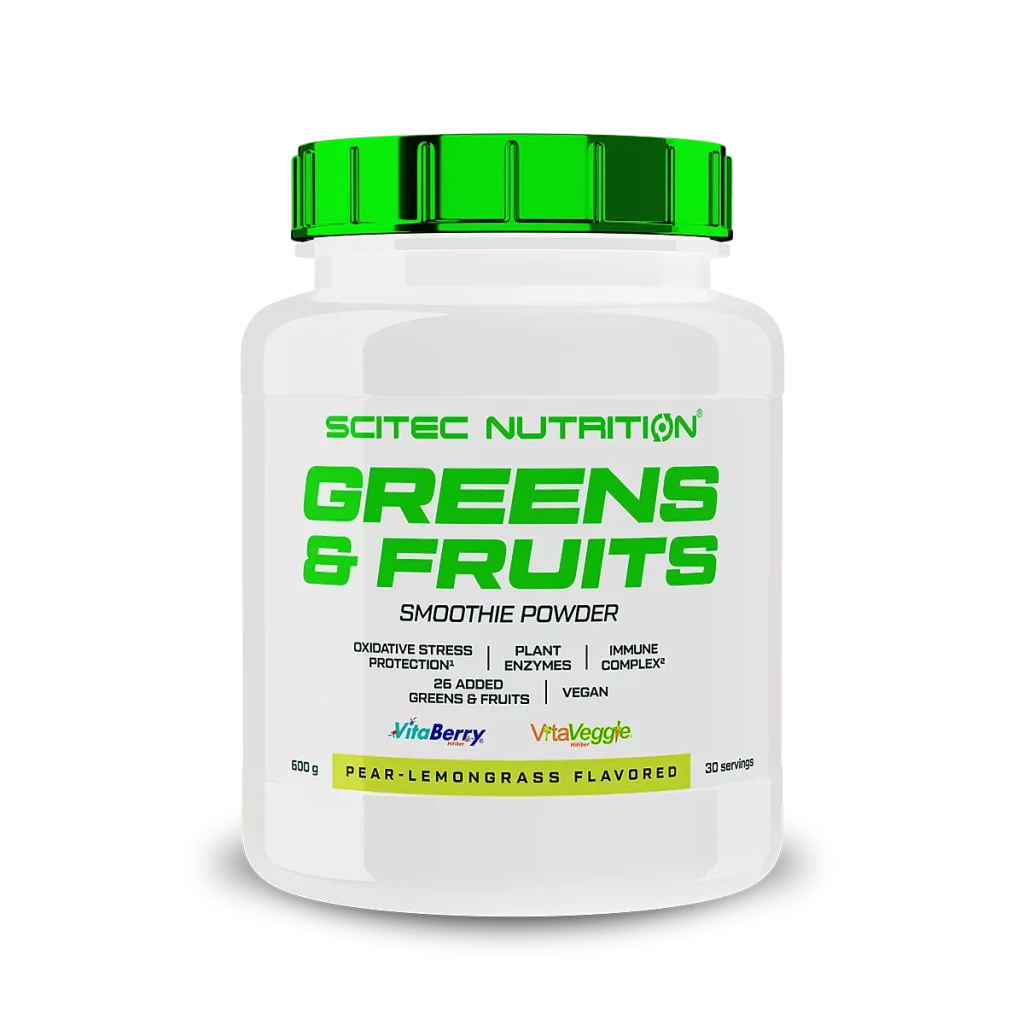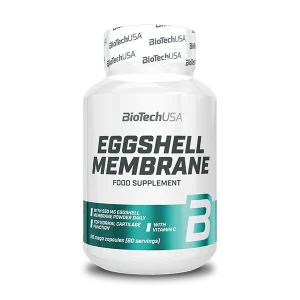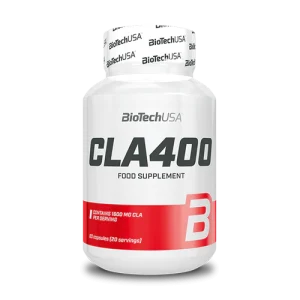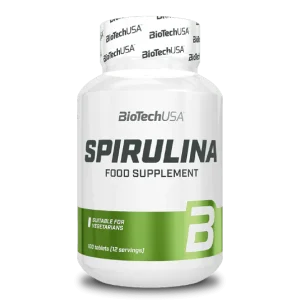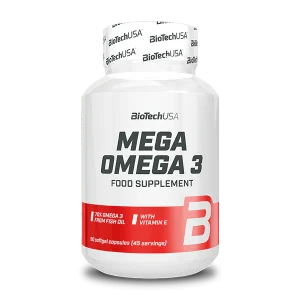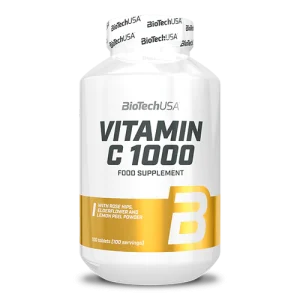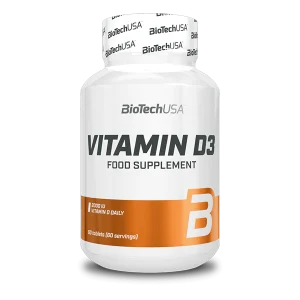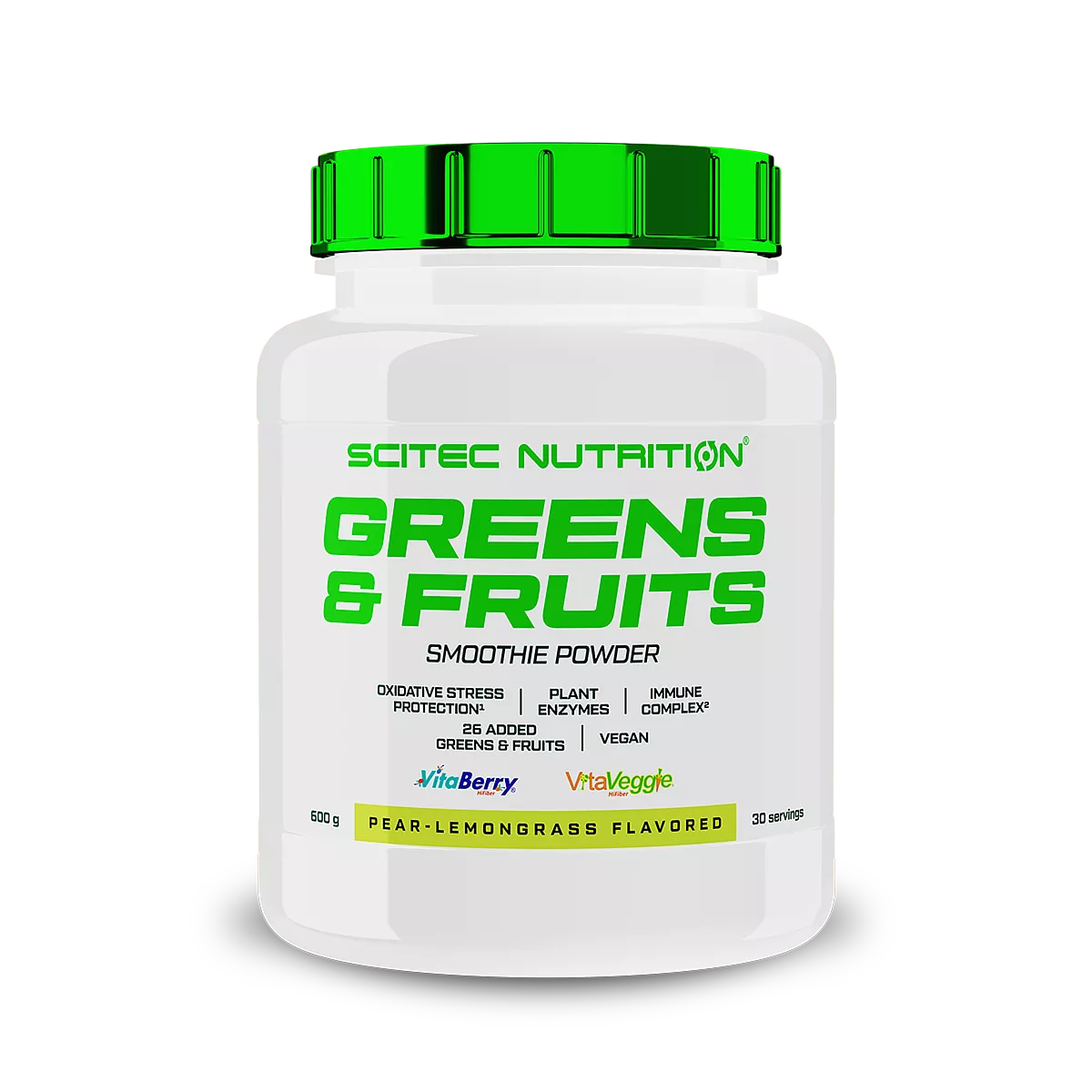
- Scitec Nutrition
- What Are Multivitamins?
- Advantages and Disadvantages of Taking Multivitamins
- Ingredients
- Vitamin A, a.k.a Retinol
- Vitamin D – Vitamin D2, a.k.a Ergocalciferol and Vitamin D3, a.k.a Cholecalciferol
- Vitamin E, a.k.a Tocopheryl Acetate
- Vitamin K – Vitamin K1, a.k.a Phylloquinone and Vitamin K2, a.k.a Menaquinones
- Vitamin C, a.k.a Ascorbic Acid
- Vitamin B1, a.k.a Thiamin or Thiamine
- Vitamin B2, a.k.a Riboflavin
- Vitamin B3, a.k.a Niacin
- Vitamin B6, a.k.a Pyridoxine
- Vitamin B9, a.k.a Folic Acid
- Vitamin B12, a.k.a Cobalamin
- Vitamin B7, a.k.a Biotin
- Vitamin B5, a.k.a Pantothenic Acid
- Calcium
- Magnesium
- Iron
- Zinc
- Copper
- Manganese
- Selenium
- Chromium
- Molybdenum
- Iodine
- HiFiber VitaVeggie® Vegetables
- Spirulina Powder
- Green Algae Powder
- Wheatgrass Powder
- Barleygrass Powder
- HiFiber VitaBerry® Fruits
- Bromelain from Pineapple
- Papain from Papaya
- Apple Fibre
- Inulin
- Available Forms
Scitec Nutrition
Scitec Nutrition is a European company that specializes in the development and manufacturing of sports nutrition supplements. Here are some general points about Scitec Nutrition:
- Company Background:
- Scitec Nutrition is a Hungarian company that was founded in 1996. It has since become one of the leading brands in the sports nutrition industry.
- Product Range:
- Scitec Nutrition offers a wide range of sports supplements, including protein powders, pre-workout formulas, amino acids, weight gainers, vitamins, and other nutritional products. Their products are designed to support various fitness goals, such as muscle building, recovery, and overall performance enhancement.
- Quality Control:
- The company emphasizes the importance of quality control and uses advanced manufacturing processes to ensure the purity and effectiveness of their products. They often highlight the use of high-quality ingredients in their formulations.
- International Presence:
- While based in Hungary, Scitec Nutrition has a global presence, distributing its products to numerous countries. It is known for having a strong presence in the European sports nutrition market.
- Customer Reviews and Reputation:
- Like any company, Scitec Nutrition’s reputation can be assessed through customer reviews and feedback. Positive reviews often highlight the effectiveness of their products, while negative reviews may address issues such as taste preferences or individual reactions.
It is recommended to check Scitec Nutrition official website or contact them directly for the most current and detailed information about their products.
What Are Multivitamins?
Multivitamins are dietary supplements that contain a combination of vitamins, minerals, and sometimes other nutrients. They are designed to provide a convenient way to ensure that individuals get a broad spectrum of essential nutrients that may be lacking in their diet. These supplements are available in various forms, including tablets, capsules, powders, and liquids.
The typical ingredients in multivitamins may include:
- Vitamins:
- These are organic compounds essential for various biochemical processes in the body. Examples include vitamin A, vitamin C, vitamin D, vitamin E, and the B-vitamins (such as vitamin B1, vitamin B2, vitamin B3, vitamin B5, vitamin B6, vitamin B12, folate, and biotin).
- Minerals:
- Other Nutrients:
- Some multivitamins may also include other beneficial compounds, such as antioxidants (e.g., beta-carotene), amino acids, or herbal extracts.
Multivitamins are not intended to replace a healthy and balanced diet, but they can be useful for individuals who may have difficulty meeting their nutritional needs through food alone. Certain populations, such as pregnant women, elderly individuals, vegetarians, or people with specific medical conditions, may benefit from multivitamin supplements. However, it’s important to note that excessive intake of certain vitamins and minerals can have adverse effects, so it’s crucial to follow recommended dosage guidelines and consult with a healthcare professional before starting any supplement regimen.
It’s always best to obtain nutrients from a varied and balanced diet, as whole foods provide a complex array of compounds that work together synergistically. If you have specific health concerns or dietary restrictions, it’s advisable to consult with a healthcare provider or a registered dietitian to determine whether a multivitamin or other supplements are appropriate for you.
Advantages and Disadvantages of Taking Multivitamins
Advantages of Taking Multivitamins:
- Nutrient Insurance:
- Multivitamins can provide a safety net by ensuring that individuals receive a baseline of essential vitamins and minerals, especially for those with dietary restrictions or inadequate intake.
- Convenience:
- They offer a convenient and easy way to obtain a broad spectrum of nutrients in a single dose, which can be beneficial for people with busy lifestyles or those who may struggle to consume a diverse range of foods.
- Specific Population Needs:
- Certain populations, such as pregnant women, the elderly, or individuals with specific medical conditions, may benefit from targeted multivitamin formulations designed to meet their unique nutritional needs.
- Health Support:
- Some studies suggest that certain populations, like older adults or pregnant women, may experience health benefits from multivitamin supplementation, such as improved immune function or reduced risk of birth defects.
Disadvantages of Taking Multivitamins:
- Overconsumption Risk:
- Excessive intake of certain vitamins and minerals can lead to adverse effects. For example, high doses of fat-soluble vitamins (A, D, E, K) can accumulate in the body and reach toxic levels.
- Incomplete Nutrient Profiles:
- Multivitamins may not provide all the nutrients found in a balanced diet, and the body may absorb and utilize nutrients differently from supplements compared to whole foods.
- Potential Interactions:
- Some vitamins and minerals can interact with medications or other supplements, potentially affecting their absorption or efficacy. It’s essential to consult with a healthcare professional to avoid potential interactions.
- No Substitute for a Healthy Diet:
- Multivitamins should not be viewed as a replacement for a well-balanced diet. Whole foods contain a variety of compounds that work together synergistically, and relying solely on supplements may neglect these interactions.
- Cost:
- Quality multivitamins can be relatively expensive, and individuals may end up spending money on supplements that may not be necessary if they already have a balanced and varied diet.
- Individual Variation:
- Nutrient requirements vary from person to person based on factors such as age, gender, health status, and lifestyle. A one-size-fits-all multivitamin may not address individualized needs.
In conclusion, while multivitamins can be beneficial for certain individuals, it’s crucial to approach their use with caution and under the guidance of a healthcare professional. A balanced and varied diet remains the best way to obtain essential nutrients for most people. If considering multivitamin supplementation, it’s important to choose a reputable product, follow recommended dosages, and prioritize obtaining nutrients from whole foods whenever possible.
Ingredients
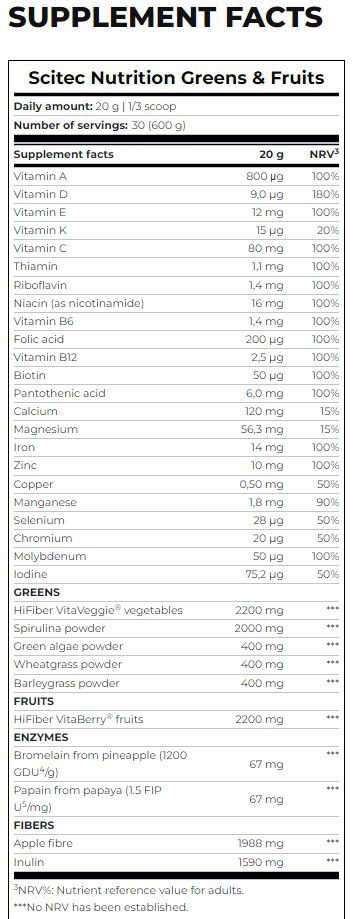
Vitamin A, a.k.a Retinol
Vitamin A is a fat-soluble vitamin essential for various physiological functions in the human body. It plays a crucial role in maintaining healthy vision, promoting immune system function, and supporting cell growth and differentiation.
There are two forms of vitamin A: retinoids, found in animal products, and carotenoids, present in fruits and vegetables. Retinol, an active form of vitamin A, is vital for vision, while carotenoids like beta-carotene act as precursors that the body can convert into active vitamin A.
Adequate vitamin A intake is crucial for preventing night blindness, supporting skin health, and bolstering the immune response. However, excessive intake can lead to toxicity, making it important to obtain the recommended daily allowance through a balanced diet rich in both animal and plant sources.
For more detailed information on vitamin A, please click here.
Vitamin D – Vitamin D2, a.k.a Ergocalciferol and Vitamin D3, a.k.a Cholecalciferol
Vitamin D is also known as the “sunshine vitamin.” This nickname stems from the fact that the body can produce vitamin D when the skin is exposed to sunlight. There are two primary forms of vitamin D:
- Vitamin D2 (Ergocalciferol):
- Found in some plant-based foods and fungi.
- Vitamin D3 (Cholecalciferol):
- Synthesized in the skin when exposed to sunlight and also found in certain animal-based foods.
Vitamin D is essential for various bodily functions, including the regulation of calcium and phosphorus absorption, maintenance of bone health, and modulation of the immune system. It plays a crucial role in preventing conditions like rickets in children and osteoporosis in adults.
While sunlight exposure is a natural source of vitamin D, dietary sources and supplements are also important, especially in individuals with limited sun exposure or specific health conditions.
For more detailed information on Vitamin D, please click here.
Vitamin E, a.k.a Tocopheryl Acetate
Vitamin E, known as tocopheryl acetate in cosmetic and skincare formulations, is a fat-soluble antioxidant crucial for maintaining skin health.
Renowned for its protective properties, it combats free radicals generated by environmental factors like UV rays and pollution. Tocopheryl acetate is a common ingredient in skincare products due to its moisturizing effects, contributing to skin hydration and suppleness. Recognized for potential anti-aging benefits, it may reduce the appearance of wrinkles and promote natural healing processes. Widely used in creams, lotions, and serums, tocopheryl acetate is generally safe for topical application, though individuals with allergies should exercise caution.
Patch testing is recommended to ensure compatibility, and consultation with a healthcare professional is advisable for specific skincare concerns.
For more detailed information on Vitamin E, please click here.
Vitamin K – Vitamin K1, a.k.a Phylloquinone and Vitamin K2, a.k.a Menaquinones
Vitamin K1 and K2 are essential fat-soluble vitamins with distinct roles in the body. Vitamin K1, or phylloquinone, is primarily found in green leafy vegetables like kale and spinach, as well as vegetable oils. Its main function lies in blood clotting, where it plays a crucial role in the synthesis of coagulation proteins.
On the other hand, Vitamin K2, or menaquinones, is present in fermented foods, meats, and certain cheeses. Notably, natto, a Japanese fermented soybean dish, is a rich source of Vitamin K2. In addition to supporting blood clotting, K2 is involved in bone metabolism, influencing calcium regulation and preventing the accumulation of calcium in arteries and soft tissues. This dual functionality makes it vital for both cardiovascular health and bone strength.
Both forms of vitamin K play pivotal roles in maintaining overall health, emphasizing the importance of a well-rounded diet that includes a variety of vegetables, fermented foods, and other nutrient-rich sources to ensure an adequate intake of these essential vitamins. Balancing vitamin K intake is crucial for supporting blood coagulation, bone health, and overall well-being.
For more detailed information on Vitamin K1 and K2, please click here.
Vitamin C, a.k.a Ascorbic Acid
Vitamin C, or ascorbic acid, is a water-soluble vitamin essential for numerous physiological functions in the human body.
As a potent antioxidant, it helps protect cells from oxidative damage, supports the immune system, and promotes the synthesis of collagen—a vital protein for skin, blood vessels, and connective tissues.
Found abundantly in fruits and vegetables, particularly citrus fruits, strawberries, and bell peppers, vitamin C is crucial for overall health. Its role in enhancing iron absorption, contributing to wound healing, and combating infections underscores its significance.
While a deficiency can lead to scurvy, characterized by fatigue, swollen gums, and joint pain, maintaining a balanced diet rich in vitamin C sources is fundamental for optimal health and well-being.
For more detailed information on vitamin C, please click here.
Vitamin B1, a.k.a Thiamin or Thiamine
Vitamin B1, also known as thiamine, is a crucial water-soluble vitamin that plays a fundamental role in energy metabolism. It is an essential coenzyme in the conversion of carbohydrates into energy, particularly in the citric acid cycle.
Thiamine also supports nerve function and helps maintain a healthy cardiovascular system. Common dietary sources of vitamin B1 include whole grains, fortified cereals, legumes, nuts, and pork. Deficiency in B1 can lead to beriberi, a condition characterized by fatigue, muscle weakness, and nerve damage. Alcohol consumption can increase the risk of thiamine deficiency.
Supplementation may be necessary for individuals with certain medical conditions or dietary restrictions, emphasizing the importance of maintaining adequate levels of this vital nutrient for overall health and well-being.
For more detailed information on vitamin B1, please click here.
Vitamin B2, a.k.a Riboflavin
Riboflavin, known as vitamin B2, is a water-soluble essential nutrient crucial for various bodily functions. It plays a key role in energy metabolism, assisting in the conversion of carbohydrates, fats, and proteins into energy.
Found in foods like dairy products, meat, and leafy greens, riboflavin supports healthy skin, eyes, and nerve functions. As a component of coenzymes FMN and FAD, it contributes to antioxidant defense, protecting cells from oxidative stress.
Deficiency can lead to ariboflavinosis, characterized by skin and eye issues. Riboflavin is vital for overall health, and a balanced diet ensures sufficient intake.
For more detailed information on vitamin B2, please click here.
Vitamin B3, a.k.a Niacin
Vitamin B3, or niacin, is a water-soluble vitamin essential for various metabolic processes. It exists in two forms: nicotinic acid and nicotinamide, both vital for the synthesis of coenzymes NAD and NADP, crucial in cellular energy production and DNA repair.
Found in both animal and plant sources, including meat, poultry, fish, whole grains, nuts, and legumes, niacin plays a fundamental role in energy metabolism, converting carbohydrates, fats, and proteins into usable energy. Severe niacin deficiency leads to pellagra, a rare condition characterized by dermatitis, diarrhea, and dementia.
While deficiency is uncommon in well-balanced diets, niacin supplements may be prescribed for specific medical conditions, with potential side effects requiring medical supervision, such as flushing and itching.
For more detailed information on vitamin B3, please click here.
Vitamin B6, a.k.a Pyridoxine
Vitamin B6, also known as pyridoxine, is a water-soluble vitamin essential for numerous biochemical processes in the body. It plays a crucial role in amino acid metabolism, supporting the synthesis of proteins, neurotransmitters, and hemoglobin.
Vitamin B6 is involved in converting stored carbohydrates into usable energy and participates in the formation of red blood cells. Additionally, it contributes to immune system function and helps regulate homocysteine levels, reducing the risk of cardiovascular disease.
Good dietary sources of B6 include poultry, fish, whole grains, nuts, seeds, and bananas.
A deficiency in Vitamin B6 can lead to symptoms such as anemia, dermatitis, and neurological issues. While deficiencies are uncommon, maintaining an adequate intake is vital for overall health.
For more detailed information on vitamin B6, please click here.
Vitamin B9, a.k.a Folic Acid
Vitamin B9, also known as folate or folic acid (synthetic form), is a water-soluble vitamin crucial for DNA synthesis, red blood cell formation, and neural tube development during pregnancy.
It supports normal cell division, amino acid metabolism, and contributes to cardiovascular health by regulating homocysteine levels.
Folate-rich foods include leafy greens, legumes, and citrus fruits. Adequate folate intake before and during pregnancy prevents neural tube defects in the fetus.
Folate deficiency can lead to anemia and is associated with increased risk of cardiovascular disease. Supplementation is recommended in specific cases, such as during pregnancy, but should be done under healthcare guidance to prevent potential adverse effects.
For more detailed information on vitamin B9, please click here.
Vitamin B12, a.k.a Cobalamin
Vitamin B12, also known as cobalamin, is a water-soluble vitamin crucial for various physiological processes. It plays a vital role in the formation of red blood cells, DNA synthesis, neurological function, and energy metabolism. B12 is primarily found in animal products such as meat, fish, eggs, and dairy.
Adequate B12 intake is essential for preventing pernicious anemia, a condition resulting from B12 deficiency. Individuals at risk of deficiency include those with certain gastrointestinal conditions, older adults, and strict vegetarians.
B12 absorption relies on intrinsic factor produced in the stomach. Deficiency symptoms include fatigue, neurological issues, and megaloblastic anemia.
B12 supplementation may be necessary for those with absorption issues or insufficient dietary intake. Regular monitoring and healthcare professional guidance are crucial for managing B12 levels.
For more detailed information on vitamin B12, please click here.
Vitamin B7, a.k.a Biotin
Vitamin B7, also known as biotin, is a water-soluble vitamin that plays a crucial role in various metabolic processes within the body. It is essential for the metabolism of carbohydrates, fats, and proteins, contributing to the production of energy.
Biotin is involved in the synthesis of fatty acids, amino acids, and glucose. It plays a vital role in maintaining healthy skin, hair, and nails.
Biotin is found in a variety of foods, including eggs, nuts, seeds, and certain vegetables. While biotin deficiency is rare, it can lead to symptoms such as hair loss and skin rash.
Biotin supplementation is sometimes recommended for individuals with specific health conditions, but it’s essential to consult with a healthcare professional before starting any supplementation.
For more detailed information on vitamin B7, please click here.
Vitamin B5, a.k.a Pantothenic Acid
Vitamin B5, also known as pantothenic acid, is a water-soluble vitamin essential for various physiological functions in the body. It plays a crucial role in the synthesis of coenzyme A, a key molecule involved in the metabolism of carbohydrates, fats, and proteins. Additionally, vitamin B5 is integral to the production of acetylcholine, a neurotransmitter vital for proper nerve function.
This vitamin is widely distributed in both plant and animal foods, with sources including meat, dairy products, legumes, and whole grains. The body requires a continuous supply of vitamin B5, as it is not stored in large amounts. A deficiency in this vitamin can lead to symptoms such as fatigue, insomnia, and digestive issues.
Beyond its role in energy metabolism, vitamin B5 is also involved in the synthesis of hormones and cholesterol. Moreover, it contributes to the maintenance of healthy skin by promoting the formation of skin cells and assisting in wound healing. Adequate intake of vitamin B5 is crucial for overall health and well-being.
For more detailed information on vitamin B5, please click here.
Calcium
Calcium is a vital mineral crucial for the formation and maintenance of strong bones and teeth. It plays a fundamental role in various physiological processes, including muscle contraction, blood clotting, and nerve transmission.
Adequate calcium intake is essential for preventing osteoporosis and maintaining bone health throughout life.
Dairy products such as milk, yogurt, and cheese are rich sources of calcium, but it is also found in leafy green vegetables, fortified foods, and supplements. Proper absorption of calcium is facilitated by vitamin D.
Insufficient calcium intake can lead to health issues such as brittle bones and increased risk of fractures. Maintaining a balanced diet with sufficient calcium is imperative for overall well-being and skeletal integrity.
For more detailed information on Calcium, please click here.
Magnesium
Magnesium is an essential mineral with diverse roles in the human body. It plays a vital role in over 300 biochemical reactions, including energy production, muscle function, and DNA synthesis. Magnesium is crucial for maintaining normal heart rhythm, bone strength, and nerve function. Dietary sources of magnesium include green leafy vegetables, nuts, seeds, and whole grains.
While magnesium deficiency is rare, it can occur in individuals with certain medical conditions or inadequate dietary intake. Symptoms of deficiency may include muscle cramps, weakness, and abnormal heart rhythms.
Magnesium supplements are available to address deficiencies, but it’s essential to use them under medical supervision, as excessive magnesium intake can lead to adverse effects. Consulting healthcare professionals for personalized guidance is crucial for maintaining optimal magnesium levels and overall health.
For more detailed information on Magnesium, please click here.
Iron
Iron is an essential mineral vital for various physiological functions in the human body. It plays a crucial role in the formation of hemoglobin, the protein responsible for transporting oxygen in red blood cells.
Adequate iron levels are essential for preventing iron-deficiency anemia, characterized by fatigue, weakness, and impaired cognitive function. Iron is also involved in energy metabolism, immune function, and the synthesis of certain enzymes.
Dietary sources of iron include red meat, poultry, fish, legumes, and fortified cereals. Iron supplements are commonly prescribed to address iron deficiencies, but excessive iron intake can lead to toxicity.
Individuals at risk of deficiency or toxicity should seek guidance from healthcare professionals to ensure optimal iron levels for overall health.
For more detailed information on Iron, please click here.
Zinc
Zinc, an essential mineral, holds diverse significance in medicine, contributing to critical physiological processes. It is a pivotal element in immune function, influencing the body’s defense mechanisms against infections. Additionally, zinc plays a key role in wound healing, aiding in the regeneration of tissues, and is an essential cofactor for enzymes involved in DNA synthesis, cell division, and protein metabolism. The multifaceted involvement of zinc in these fundamental processes underscores its importance in supporting overall health and addressing specific medical needs.
In the realm of medicine, zinc supplementation is employed to treat deficiencies, enhance immune function, and promote the healing of wounds, particularly in dermatological conditions. Its potential antiviral properties have also been a subject of exploration. However, it’s crucial to maintain a balanced approach to zinc intake, as excessive amounts can lead to adverse effects. Understanding the nuanced role of zinc in medicine allows healthcare professionals to leverage its therapeutic benefits while avoiding potential risks associated with imbalances.
For more detailed information on Zinc, please click here.
Copper
In medicine, copper plays a crucial role as an essential trace element necessary for various physiological functions in the human body.
It contributes to the formation of connective tissues, supports the immune system, and aids in the absorption of iron. Copper is an integral component of enzymes involved in energy production, antioxidant defense, and neurotransmitter synthesis.
While copper deficiency is rare, excessive copper intake can lead to toxicity and adverse health effects. Medicinal applications involve the use of copper-infused materials for wound healing and antimicrobial purposes. Copper bracelets, for example, are thought by some to alleviate joint pain, although scientific evidence supporting these claims is limited.
The delicate balance of copper in the body underscores its significance in maintaining overall health and highlights its intersection between medicine and material science.
For more detailed information on Copper, please click here.
Manganese
Manganese is an essential trace element that plays a crucial role in various physiological processes within the human body.
It serves as a cofactor for numerous enzymes involved in metabolism, bone formation, and antioxidant defense. Manganese contributes to the proper development and maintenance of connective tissues, blood clotting factors, and sex hormones.
While manganese deficiency is rare, excessive exposure to manganese, particularly through occupational settings, can lead to neurological issues known as manganism. In medicine, manganese is primarily recognized for its role as a cofactor in enzyme systems, supporting overall health and contributing to the body’s ability to maintain essential functions. As with any micronutrient, maintaining a balanced intake is essential for optimal health.
For more detailed information on Manganese, please click here.
Selenium
Selenium is an essential trace element with crucial roles in human health. Functioning primarily as a component of selenoproteins, selenium contributes to antioxidant defense mechanisms, protecting cells from oxidative stress. It is integral for normal thyroid function and immune system modulation. Adequate selenium intake is associated with a lower risk of certain cancers, particularly in regions with low selenium soil content. Conversely, selenium deficiency can lead to conditions such as Keshan disease and Kashin-Beck disease, affecting the heart and joints, respectively. While selenium is vital for health, excessive intake can also be harmful. Balancing selenium levels through a diverse diet is essential for optimal well-being.
For more detailed information on Selenium, please click here.
Chromium
Chromium holds significance in medicine as a crucial trace element, integral to various physiological processes. Its pivotal role in insulin activity and glucose metabolism suggests potential applications in diabetes management, where chromium supplementation may enhance insulin sensitivity. Furthermore, studies indicate that chromium’s impact extends to lipid profiles, offering potential cardiovascular benefits. The element’s antioxidant properties also contribute to its therapeutic appeal by combating oxidative stress associated with diverse ailments. As research progresses, chromium’s intricate involvement in metabolic pathways underscores its potential in promoting overall health, though careful consideration is necessary to avoid the pitfalls of excessive supplementation.
Despite its promising attributes, caution should be exercised in the use of chromium supplements due to potential adverse effects. The delicate balance of chromium in the body requires a nuanced approach to avoid unintended consequences. Ongoing investigations into the therapeutic potential of chromium in various medical contexts highlight the need for a comprehensive understanding of its role and the cautious integration of this trace element into healthcare practices.
For more detailed information on Chromium, please click here.
Molybdenum
Molybdenum is an essential trace element that plays a vital role in human health. Acting as a cofactor for enzymes, particularly those involved in sulfur metabolism, molybdenum contributes to the body’s ability to detoxify harmful substances and metabolize certain amino acids. Molybdenum-dependent enzymes are crucial for the conversion of sulfite to sulfate, a process integral to cellular function.
While molybdenum deficiency is rare, it can lead to severe neurological and developmental issues. Molybdenum-rich foods, including legumes, grains, and leafy vegetables, are essential for maintaining optimal levels. Beyond its significance in human biology, molybdenum’s therapeutic applications are limited, and its main focus remains on supporting fundamental biochemical processes.
For more detailed information on Molybdenum, please click here.
Iodine
Iodine is an essential element crucial for the synthesis of thyroid hormones, which play a fundamental role in regulating metabolism and supporting overall growth and development.
While iodine deficiency can lead to thyroid disorders and developmental issues, excess iodine can also have adverse effects. Iodine is commonly administered as iodine-based medications or iodized salt to prevent deficiencies.
Radioactive iodine is used in medical treatments, particularly for thyroid disorders and certain cancers. Iodine contrasts, such as iodine-based dyes, are utilized in medical imaging procedures like CT scans.
Maintaining a balance in iodine intake is critical for optimal health, and healthcare professionals carefully prescribe iodine-containing medications or treatments based on individual health needs.
For more detailed information on Iodine, please click here.
HiFiber VitaVeggie® Vegetables
Spirulina Powder
Spirulina powder is a finely ground form of the nutrient-rich cyanobacteria, Spirulina. Known for its intense green-blue color, the powder is derived from dried spirulina, a microscopic algae that thrives in alkaline freshwater.
Packed with essential nutrients, including complete proteins, vitamins, minerals, and antioxidants, spirulina powder is a popular dietary supplement. It is recognized for its potential health benefits, such as immune system support, anti-inflammatory properties, and as a source of energy. Commonly used in smoothies, juices, or added to foods, spirulina powder offers a convenient way to enhance nutritional intake, particularly for individuals following vegetarian or vegan diets.
As with any supplement, it’s essential to ensure its quality, source, and consult with healthcare professionals, especially for those with specific health concerns or allergies.
For more detailed information on Spirulina powder, please click here.
Green Algae Powder
Green algae, a diverse group of photosynthetic organisms in the plant kingdom, range from microscopic unicellular forms to larger seaweeds. Thriving in various aquatic environments, they exhibit chlorophyll for photosynthesis, converting sunlight into energy.
Green algae, rich in nutrients, encompass proteins, vitamins, minerals, and antioxidants. Green algae powder, derived from dried and processed algae, serves as a nutrient-dense superfood and dietary supplement. Marketed for its concentration of essential elements, including chlorophyll and omega-3 fatty acids, it offers potential health benefits.
Notably, it functions as a protein source, making it valuable for vegetarians and vegans. With potential digestive health benefits and antioxidant properties, green algae and its powdered form contribute to overall well-being, although sourcing from reputable providers and consulting with healthcare professionals is advisable.
For more detailed information on Green Algae Powder, please click here.
Wheatgrass Powder
Wheatgrass powder is a concentrated source of nutrients derived from the young shoots of the wheat plant, Triticum aestivum.
Packed with vitamins, minerals, antioxidants, and chlorophyll, wheatgrass is celebrated for its potential health benefits. Rich in vitamin A, vitamin C, and vitamin E, as well as essential minerals like iron and magnesium, it supports immune function, aids detoxification, and exhibits antioxidant properties. Chlorophyll, the green pigment in wheatgrass, contributes to its alkalizing effects and potential anti-inflammatory benefits. Often consumed in powdered form, wheatgrass can be easily added to juices, smoothies, or water.
However, individual responses vary, and consulting healthcare professionals is advisable, particularly for those with allergies, sensitivities, or medical conditions. Incorporating wheatgrass into a balanced diet may enhance overall nutrition and well-being.
For more detailed information on Wheatgrass Powder, please click here.
Barleygrass Powder
Barley grass powder is a nutrient-dense supplement derived from the young leaves of the barley plant.
Packed with vitamins, minerals, antioxidants, and chlorophyll, it offers a range of potential health benefits. Rich in vitamin A, vitamin C, and vitamin K, as well as essential minerals like iron and calcium, barley grass powder supports overall health. Its high chlorophyll content contributes to detoxification and antioxidant properties, while dietary fiber promotes digestive health. Barley grass powder is alkalizing, helping to balance pH levels, and its anti-inflammatory potential may benefit those dealing with inflammatory conditions.
Available in powder or capsule form, it can be easily incorporated into beverages or smoothies. However, it’s advisable to consult with a healthcare professional before adding barley grass powder to your routine, especially if you have health concerns or are taking medications.
For more detailed information on Barleygrass Powder, please click here.
HiFiber VitaBerry® Fruits
Bromelain from Pineapple
Bromelain is a mixture of proteolytic enzymes found in the pineapple plant (Ananas comosus), particularly in the stem and fruit.
Renowned for its therapeutic properties, bromelain has anti-inflammatory, anti-edematous, and digestive benefits. Its protease enzymes aid in the breakdown of proteins, facilitating digestion and absorption. Beyond its digestive role, bromelain demonstrates anti-inflammatory effects by modulating immune responses and reducing swelling. This has led to its use as a natural remedy for conditions like osteoarthritis and sinusitis. Additionally, bromelain’s ability to enhance nutrient absorption and reduce inflammation has attracted interest in sports medicine and post-surgical recovery.
While it’s generally considered safe, individuals with allergies to pineapple should exercise caution. As a supplement, bromelain offers a versatile natural remedy with potential health applications.
For more detailed information on Bromelain from Pineapple, please click here.
Papain from Papaya
Papain, derived from the latex of the papaya fruit (Carica papaya), is a proteolytic enzyme with diverse applications. Known for its protein-digesting properties, papain is extensively used as a meat tenderizer in the food industry and aids in the brewing process. Comprising thiol groups, papain is extracted from unripe papaya fruits, stems, and leaves.
Beyond culinary uses, it finds applications in pharmaceuticals, contributing to digestive enzyme supplements and wound care products. Believed to possess anti-inflammatory and antioxidant properties, papain is also explored in traditional medicine. As a digestive aid, it assists in protein breakdown in the digestive tract.
However, individuals with latex allergies should exercise caution, and consulting with healthcare professionals is advisable before incorporating papain into health or skincare regimens.
For more detailed information on Papain from Papaya, please click here.
Apple Fibre
Apple fiber, derived from the popular fruit, is a rich source of dietary fiber, encompassing both soluble and insoluble components. With the majority located in the apple’s skin, this fiber offers numerous health benefits.
- Soluble fiber, notably pectin, aids in digestive health, supporting regular bowel movements and fostering a balanced gut microbiome.
- The insoluble fiber in apple skin contributes to bulkier stools, promoting gastrointestinal well-being.
Beyond its fiber content, apples provide essential vitamins, minerals, and antioxidants. Apple fiber’s soluble nature, specifically pectin, is associated with potential blood sugar regulation, making it advantageous for individuals managing diabetes. Additionally, some studies suggest a role in cholesterol management. As a low-calorie, nutrient-dense snack, apple fiber contributes to overall wellness and is easily incorporated into a balanced diet.
For more detailed information on Apple Fibre, please click here.
Inulin
Inulin is a naturally occurring polysaccharide belonging to the fructan group, found in various plants such as chicory roots, Jerusalem artichokes, and dandelions. Comprising repeating fructose units linked by glycosidic bonds, inulin is indigestible by human enzymes, reaching the colon intact where it serves as a prebiotic, promoting the growth of beneficial gut bacteria.
Widely used in the food industry as a soluble dietary fiber and sugar substitute due to its sweetening properties without impacting blood sugar levels, inulin also enhances the texture and mouthfeel of products. Beyond its applications in food, inulin has gained attention for its potential health benefits, including improved gut health, enhanced mineral absorption, and potential support for weight management.
As a versatile compound, inulin continues to be a subject of research for its various applications in nutrition and health.
For more detailed information on Inulin, please click here.
Available Forms
Greens & Fruits by Scitec Nutrition is available in one size only: a bottle with 20 g. (1/3 scoop)/30 servings (600 gr).
